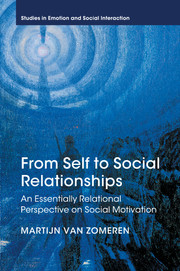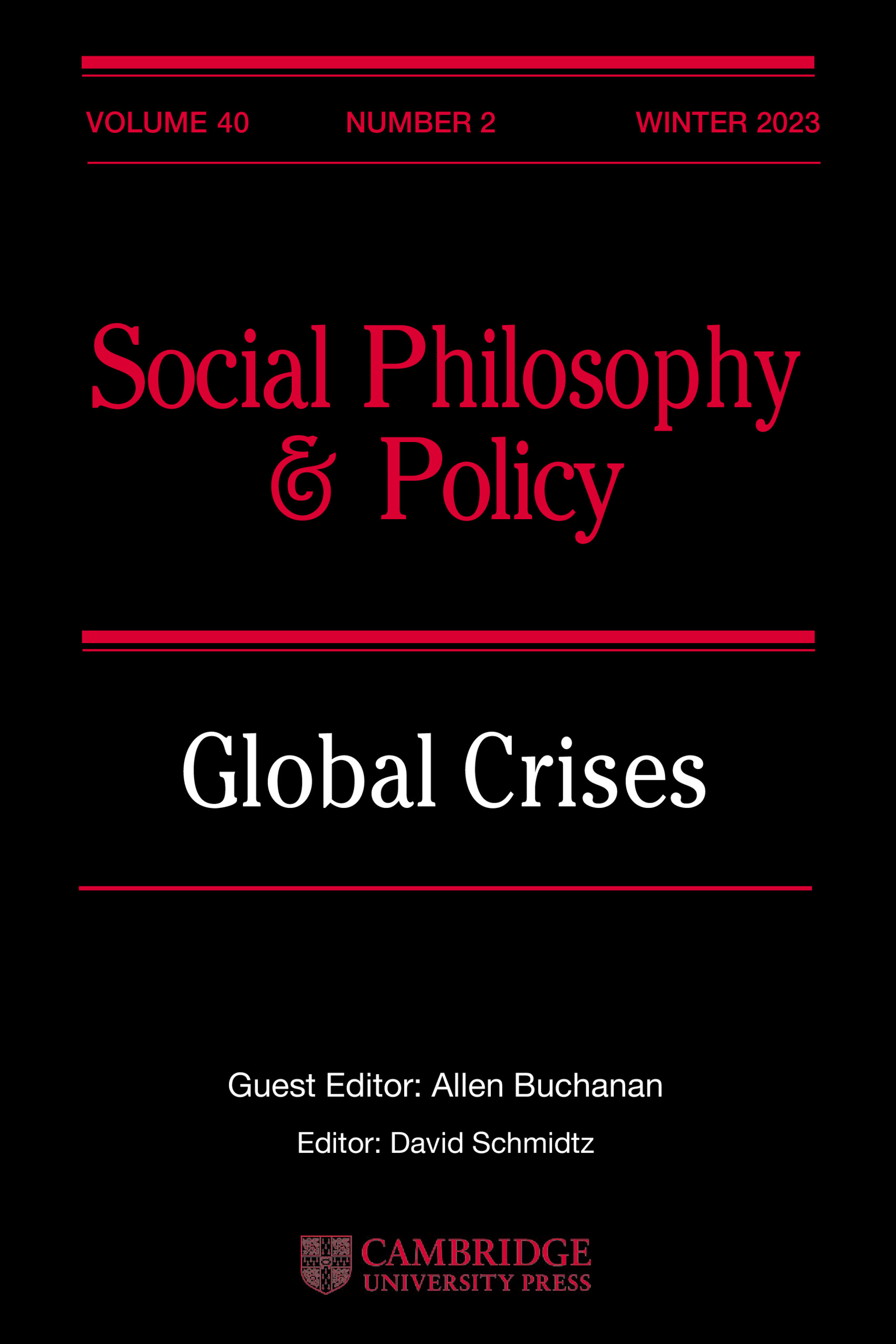From Self to Social Relationships
An Essentially Relational Perspective on Social Motivation
Part of Studies in Emotion and Social Interaction
- Author: Martijn van Zomeren, Rijksuniversiteit Groningen, The Netherlands
- Date Published: April 2018
- availability: Available
- format: Paperback
- isbn: 9781107474727
Paperback
Other available formats:
Hardback, eBook
Looking for an inspection copy?
This title is not currently available for inspection. However, if you are interested in the title for your course we can consider offering an inspection copy. To register your interest please contact [email protected] providing details of the course you are teaching.
-
What is it that moves and motivates us in our lives? Martijn van Zomeren proposes that social relationships are at the essence of this key question and, in a fascinating investigation into human motivation, he develops a novel and integrative psychological theory termed 'selvations theory'. The theory suggests that we are essentially relational beings that seek to regulate relationships in response to felt changes in our network of relationships (selvations). However, we need to do this in culturally appropriate ways and this is where our culturally construed self comes to be of use. From Self to Social Relationships constitutes a powerful argument about human essence, integrating major theories in and around psychology, which has strong implications for the study and practice of social motivation.
Read more- Proposes that social relationships are at the essence of human motivation
- Examines how different assumptions have different implications for theory and research on social motivation
- Discusses clear implications for theory and research, but also for everyday life, health and happiness
Reviews & endorsements
'This is a carefully crafted and creative entry into the significant attempts of scholars to replace traditional models of individualist and atomizing psychology with accounts that place relational process at the center of our understanding. As van Zomeren forcefully argues, it is not self-gain that fundamentally motivates our actions, but the regulation of relationships. The research implications are enormous.' Kenneth J. Gergen, Swarthmore College, Pennsylvania
See more reviews'This well-written book covers a lot of ground, and does so in a thoughtful manner. It is one of the most integrative books I have seen in recent years.' Paul A. M. Van Lange, Vrije Universiteit, Amsterdam
Customer reviews
Not yet reviewed
Be the first to review
Review was not posted due to profanity
×Product details
- Date Published: April 2018
- format: Paperback
- isbn: 9781107474727
- length: 205 pages
- dimensions: 230 x 153 x 12 mm
- weight: 0.32kg
- contains: 7 b/w illus.
- availability: Available
Table of Contents
Prologue
Part I. Assumptions:
1. Toward theoretical integration
2. A shift from self to selvations
Part II. Selvations Theory:
3. Selvations theory I: value infusion
4. Selvations theory II: coping with value-infused events
Part III. Implications:
5. So what?
Epilogue.
Sorry, this resource is locked
Please register or sign in to request access. If you are having problems accessing these resources please email [email protected]
Register Sign in» Proceed
You are now leaving the Cambridge University Press website. Your eBook purchase and download will be completed by our partner www.ebooks.com. Please see the permission section of the www.ebooks.com catalogue page for details of the print & copy limits on our eBooks.
Continue ×Are you sure you want to delete your account?
This cannot be undone.
Thank you for your feedback which will help us improve our service.
If you requested a response, we will make sure to get back to you shortly.
×








